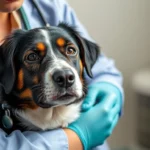
Fungal infections in dogs are a significant concern for many pet owners. Understanding these infections is crucial in ensuring the health and well-being of your canine companion. By gaining insights into the types of fungal infections, symptoms, diagnoses, treatment options, and preventive measures, pet owners can better protect their furry friends.
Understanding Fungal Infections in Dogs
What are Fungal Infections?
Fungal infections are caused by the invasion of fungi into the body, leading to various health issues. These infections can affect the skin, respiratory system, and even internal organs. Common types of fungi that can affect dogs include dermatophytes, molds, and yeasts. Each type of fungus can cause different symptoms and health complications, making it essential for pet owners to recognize the signs early.
How Fungal Infections Occur
Fungal infections often start with spores that are present in the environment. These spores can be inhaled or come into contact with the skin, leading to infection. Several factors contribute to fungal infections in dogs, including:
- Environmental Conditions: Warm, humid environments are ideal for fungi to thrive.
- Compromised Immune System: Dogs with weakened immune systems are more susceptible to infections.
- Underlying Health Issues: Conditions such as diabetes or allergies can increase the risk of fungal infections.
Common Fungal Infections in Dogs
Several fungal infections are prevalent among dogs, including:
- Dermatophytes (Ringworm): A highly contagious skin infection that can cause hair loss and itchy patches.
- Aspergillosis: A respiratory infection caused by Aspergillus fungi, often affecting dogs with compromised immune systems.
- Blastomycosis: A serious infection caused by inhaling spores from the Blastomyces fungus, which can affect the lungs and other organs.
- Histoplasmosis: This infection is caused by Histoplasma capsulatum, often leading to respiratory issues.
- Coccidioidomycosis: Also known as Valley Fever, this fungal infection is caused by Coccidioides immitis and can lead to severe respiratory problems.
Symptoms of Fungal Infections
General Symptoms
Recognizing the general symptoms of fungal infections in dogs is crucial for early detection. Common signs include:
- Itching and scratching
- Hair loss or bald patches
- Lethargy and decreased activity
- Skin lesions or rashes
- Difficulty breathing (in respiratory infections)
Specific Symptoms by Infection Type
The symptoms can vary based on the type of fungal infection:
- Dermatophytes (Ringworm): Circular patches of hair loss, redness, and crusty lesions on the skin.
- Aspergillosis: Nasal discharge, sneezing, and difficulty breathing, especially in older or immunocompromised dogs.
- Blastomycosis: Coughing, weight loss, and fever, with potential skin lesions.
- Histoplasmosis: Cough, lethargy, and gastrointestinal issues such as diarrhea.
- Coccidioidomycosis: Coughing, fever, and in severe cases, lameness due to bone involvement.
When to Visit a Veterinarian
If you notice any of the above symptoms, it is essential to consult a veterinarian. Early intervention can prevent complications and ensure effective treatment. Seek veterinary care if your dog exhibits severe symptoms, such as difficulty breathing, persistent coughing, or significant lethargy.
Diagnosis of Fungal Infections
Veterinary Examination
A thorough veterinary examination is the first step in diagnosing a fungal infection. The veterinarian will take the following steps:
- History-Taking: Discussing the dog’s medical history, recent activities, and any potential exposure to contaminated environments.
- Physical Examination: Inspecting the skin, ears, and respiratory system for signs of infection.
Diagnostic Tests
To confirm a fungal infection, veterinarians may perform several diagnostic tests:
- Skin Scrapings: Collecting samples from affected skin areas to look for fungal elements under a microscope.
- Cultures: Growing fungal spores from samples taken from the dog’s skin, blood, or other tissues to identify the specific fungus causing the infection.
- Blood Tests: Checking for antibodies or other indications of systemic fungal infections.
These tests help determine the type of fungus involved and guide treatment decisions.
Treatment Options
Medical Treatments
Treatment options for fungal infections typically involve antifungal medications. These can include:
- Topical Treatments: Creams or ointments applied directly to the affected area for localized infections.
- Oral Medications: Systemic antifungal drugs that treat infections affecting internal organs or extensive skin lesions.
It’s essential to complete the entire course of prescribed medications, even if symptoms improve before finishing the treatment. This helps prevent recurrence and resistance.
Home Care and Management
Pet owners play a crucial role in managing fungal infections. Recommended practices include:
- Regular Grooming: Keeping the dog clean and free from excess moisture can help prevent fungal growth.
- Environmental Cleaning: Regularly cleaning bedding, toys, and living areas reduces the risk of reinfection.
- Monitoring Symptoms: Keeping an eye on your dog’s recovery and reporting any changes to your veterinarian.
Alternative Treatments
Some pet owners explore alternative therapies for managing fungal infections. While some natural remedies and supplements may provide support, it is crucial to consult your veterinarian before trying unproven methods. Relying solely on alternative treatments can delay effective care and worsen the infection.
Prevention of Fungal Infections
Environmental Factors
Preventing fungal infections begins with maintaining a clean and safe environment. Here are some tips:
- Keep your dog’s living area dry and well-ventilated.
- Remove mold and mildew from the home, especially in humid areas.
- Provide regular grooming to keep your dog’s coat healthy and free of debris.
Regular Veterinary Care
Routine veterinary check-ups are essential for early detection and prevention. Regular vaccinations and preventative medications can help protect your dog from specific fungal infections.
Education and Awareness
Staying informed about fungal infections is vital for pet owners. Regularly educate yourself on the signs and prevention strategies to ensure your dog remains healthy. Awareness can go a long way in preventing infections and addressing them promptly.
Frequently Asked Questions (FAQs)
Can Fungal Infections Be Transmitted to Humans?
Some fungal infections in dogs can have zoonotic potential, meaning they can be transmitted to humans. For example, dermatophytes (ringworm) can spread to humans through direct contact with an infected dog. Proper hygiene and prompt treatment can help reduce this risk.
How Long Does Treatment Take?
The duration of treatment for fungal infections varies based on the type and severity of the infection. Mild infections may require a few weeks of treatment, while more severe cases can take several months. Always follow your veterinarian’s recommendations for treatment duration.
Can Fungal Infections Recur?
Yes, fungal infections can recur, particularly if the underlying environmental factors are not addressed. Maintaining a clean environment and following preventive measures can help reduce the risk of recurrence.
What Should I Do If My Dog Has a Fungal Infection?
If your dog is diagnosed with a fungal infection, follow your veterinarian’s advice closely. Start treatment immediately, keep your dog isolated from other pets if needed, and maintain a clean environment to aid in recovery.
Conclusion
Fungal infections in dogs pose a serious health risk, but with proper knowledge and proactive care, pet owners can effectively manage and prevent these infections. Recognizing symptoms early, seeking veterinary care, and adhering to treatment plans are crucial steps in ensuring your dog’s well-being. Stay informed, and always consult your veterinarian if you suspect your dog may have a fungal infection. Awareness and proactive care are key to keeping your furry friend healthy and happy.









